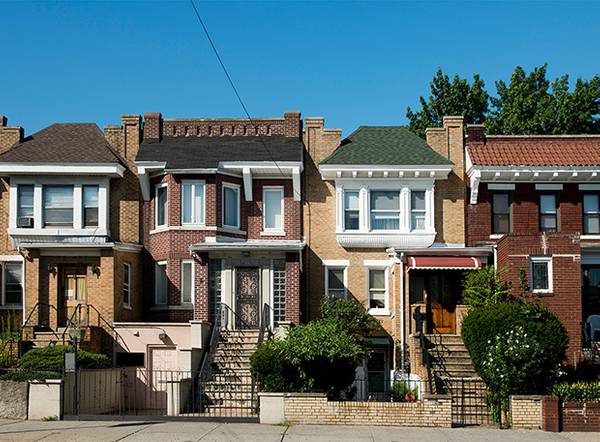
What is a Home Equity Line of Credit?
Home equity is the difference between a home’s value and any outstanding loans on the property. Homeowners can earn equity by paying down their mortgage, by making improvements that raised the home’s value or simply as the result of a strong housing market that increased values.
A home equity line of credit (HELOC) is a revolving line of credit secured by home equity. A HELOC often has a lower interest rate than other types of loans and more flexibility. Borrowers only use the money when they need it and pay interest only on what they use.
Funds from a HELOC can be used for any purpose, but most homeowners use them for
- Home repairs or improvements
- Debt consolidation
- Large expenses such as college tuition
- Emergency cushion before or after retirement
How Does a Home Equity Line of Credit Work?
A HELOC credit line is based on the amount of equity a homeowner has in their property when they apply for their loan. The amount of credit a homeowner will qualify for depends on the market value of the home, their current mortgage balance, credit history and other criteria.
Borrowing Limits
For example, let’s say a home is worth $500,000. How much its owner can borrow depends on a loan-to-value ratio (LTV) set by the lender. Average LTVs range from 70% to 85%. If the loan-to-value ratio is set at 70%, that puts the maximum financing that can be secured by this home at $350,000. Next, the mortgage balance is subtracted from that $350,000. So, if the homeowner currently owes $250,000 on the mortgage, $350,000 less $250,000 leaves $100,000 in home equity available to borrow against.
Our home equity line of credit calculator can help you estimate how much you may be able to borrow with this type of loan. Be sure to contact a Bethpage Federal Credit Union expert if you need help or have any questions.
Credit Terms and Fees
HELOCS are popular because of their low initial required payments and flexible repayment options. They have two phases:
- Borrowing: Homeowners can make draws from their line of credit, which is typically 10 years. During this period, the borrower can generally make interest-only monthly payments.
- Repayment: This period can be 5, 10 or 20 years. During this period, the borrower can no longer make draws on the credit line and all principal and interest must be repaid.
Another benefit of HELOCs is that they tend to have low closing costs, compared to home equity or other types of loans.
How Do I Apply for a Home Equity Line of Credit?
Qualifications
If you own your home, you’re eligible to apply for a home equity line of credit. Lenders evaluate certain criteria to determine if you qualify, such as your credit history, employment, income and the amount you wish to borrow. They also consider the relationship between your estimated equity and the value of your home. Do you have 25% equity in your home? 50%? 80%?
Before you begin your HELOC application, it may be helpful to check out your credit history and score. Any lender will look at these during the decision process, so it’s best to go in with your eyes wide open. All three national credit reporting agencies are required by law to give you free access to your credit reports once a year, and it’s good to check all three for mistakes. They aren’t uncommon. Correcting errors before your lender reviews your information can save stress and time.
Documentation
When you are ready to start the home equity lending process, you’ll need to collect:
- Social Security Number
- 2 recent pay stubs and information about your employment history
- Full tax returns, including all schedules and W2’s
- 1st mortgage statement (if you are currently paying a first mortgage), plus information on property taxes and insurance
If you are applying jointly, don’t forget to have this information available for your co-applicant too.
How to apply for a HELOC
We make applying for a HELOC simple and convenient at Bethpage. You can start the process by applying for the loan online, in person at a branch or over the phone at 1-855-330-6630.
Once you’ve submitted your application, we collect your financial information and run a credit report. Then, our next step is to appraise your property.
What is a HELOC Appraisal?
In a HELOC appraisal, a lender assesses the current value of the home to confirm how much equity the homeowner has available. Getting an accurate valuation of equity protects both the lender and the borrower. In addition to limiting the lender’s risk, it prevents homeowners from borrowing too much and getting into financial trouble.
Unlike the full on-site appraisals required for primary mortgages, home equity lenders have more leeway in determining how they conduct an appraisal. They can rely on:
- A drive-by appraisal of the home’s exterior and neighborhood, with a report on the value of comparable properties
- A desk review of comparable property value data
- An estimate of market value based on the county tax assessor’s assessed value
There may not be much for you to do during this step in the process unless your lender conducts a full appraisal, in which case a professional appraiser may need access to your home. For a full appraisal, you’ll want to make your home look its best, point out any home improvements you’ve made and be prepared to answer the appraiser’s questions.
Securing a Home Equity Line of Credit with Bethpage Federal Credit Union
Now that you’ve learned more about the process, does a HELOC seem like a good fit for you? A Bethpage home equity line of credit can offer you rates lower than national averages, no fees and the exceptional customer service of a local credit union that cares about its community.
Just a few more things potential borrowers should know …
- Home equity lines are available at Bethpage for the primary residence only.
- If the loan is satisfied and closed within the first 36 months, all closing costs must be paid
Now that you are familiar with the home equity line of credit lending process, be sure to check the current Bethpage rates and start your HELOC application today!
- Categories:



